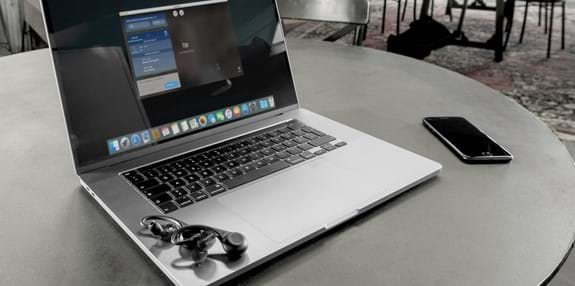Virtual Meeting Best Practices

A key reason why conference calls are so tiring is because it’s very hard work for your brain to listen to and process poor sound. Concentration wavers if it’s difficult to hear what the others are saying. You can only stay focused for a short while before meeting fatigue sets in.
Here are a few things you need to keep in mind to ensure your voice counts and to make the experience better for everyone.
BEFORE THE CALL
Find A Quiet Place
Avoid noisy environments. Settling in a quiet room not only helps you but also everyone else to stay focused. Remember to also turn off notifications on your mobile phone and other devices. If you get distracted easily, get yourself some good quality noise cancelling headphones or sound isolating earphones to tune out background noises in your room.
Use The Right Gear
Don’t rely on your built-in laptop microphone. It’s omnidirectional, which means it captures all the noise in the room that can overpower your voice. External USB microphones that sit on your desktop are ideal because they are designed to directly pick up your voice and can also be pulled closer so you don’t have to lean in. Earphones or headphones with an integrated microphone are another good option as they are much closer to your mouth by design.
Test Your Setup
Check your equipment and do a test run well before the meeting starts.
- Update your conferencing software. You don’t want an unexpected update during your call.
- Use a wired connection rather than Wi-Fi to avoid dropouts.
- Make sure that external devices like microphone, speakers, and camera are configured correctly and work.
- Check that the battery on your wireless or Bluetooth® device is fully charged.
DURING THE CALL
Mute Yourself
If you‘re not talking, mute yourself to limit background noise for everyone else on the call, and to avoid the risk of causing an echo. Don’t be shy to tell others to mute their mics too. It only helps when everyone does it. When it’s your turn to speak again, don’t forget to unmute.
Speak Up
Not everyone on the call has the same technical setup. You want to sound loud and clear to all, so make sure to speak up and, more importantly, speak into your microphone.
Note: If you‘re using wired earphones or headphones, avoid unnecessary movement so you don‘t get noise from the mic brushing against your shirt. You can also consider changing to a Bluetooth device.
Don't Overtalk
Letting other people finish what they have to say isn’t only a matter of good manners. Due to slow connections and lags, full duplex communication may not be possible, so be patient and don’t interrupt. Also, when you speak for a longer period of time, remember to pause for a few seconds to give others a chance to catch up and respond.
How To Fix Poor Sound?
Read this related article about what makes your conference call sound so bad, and what to do about.

Related Posts
Spotlight On: Audio Equity Empowers Meeting Equity
Meeting equity is the most critical component for successful hybrid meetings. By rethinking and investing in audio you could impact your organization today, tomorrow, and forever.
Spotlight On - Being able to hear and be heard should be non-negotiable
Meeting equity is the most critical component for successful hybrid meetings. By rethinking and investing in audio you could impact your organization today, tomorrow, and forever.